
Find Help
More Items From Ergsy search
-

Coping with Stress and Anxiety
Relevance: 100%
-

How is health-related anxiety different from general anxiety?
Relevance: 64%
-

What is health-related anxiety?
Relevance: 63%
-

Anxiety | NHS
Relevance: 62%
-
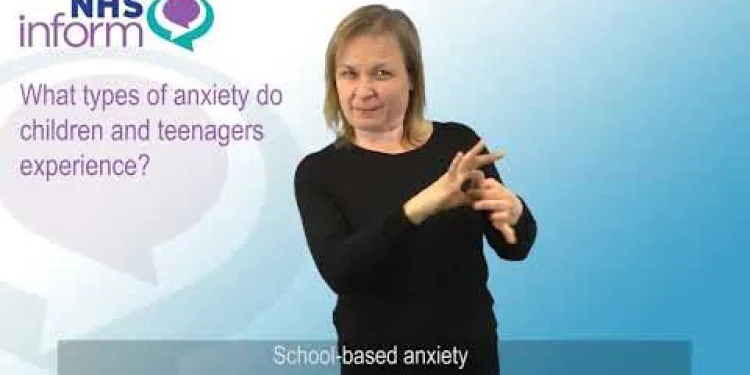
Anxiety in young people
Relevance: 59%
-

Is health-related anxiety a common condition?
Relevance: 59%
-

What are common treatments for health-related anxiety?
Relevance: 57%
-
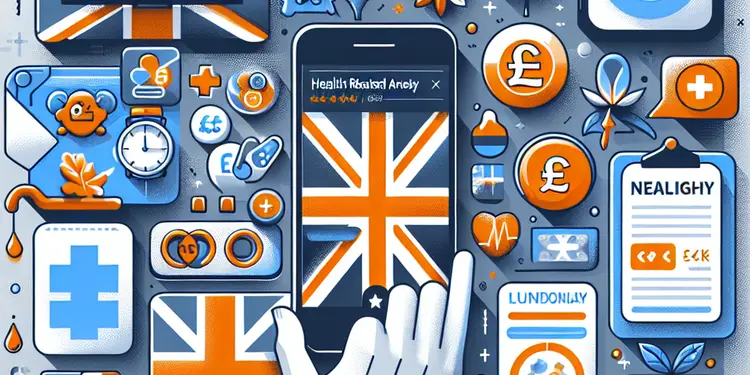
What is health related anxiety?
Relevance: 57%
-

Does stress affect tinnitus?
Relevance: 57%
-

Can health-related anxiety cause physical symptoms?
Relevance: 56%
-

Are there self-help strategies for managing health-related anxiety?
Relevance: 55%
-
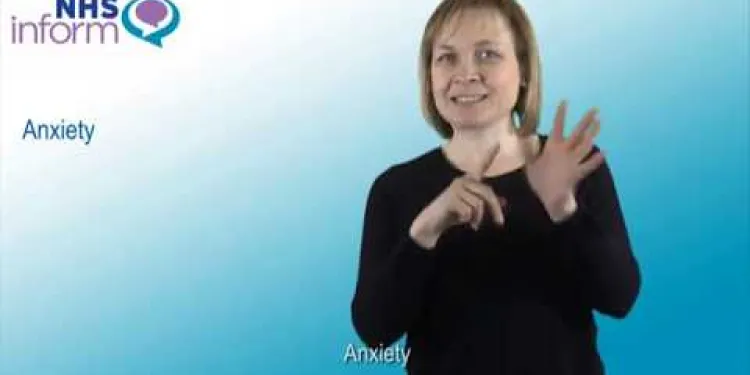
Generalised anxiety disorder (GAD)
Relevance: 55%
-

Can health-related anxiety lead to actual health problems?
Relevance: 54%
-

Why is reassurance not always helpful for health-related anxiety?
Relevance: 54%
-

Is medication effective for health-related anxiety?
Relevance: 54%
-

What causes health-related anxiety?
Relevance: 54%
-

Can health-related anxiety affect relationships?
Relevance: 54%
-

What are common symptoms of health-related anxiety?
Relevance: 53%
-
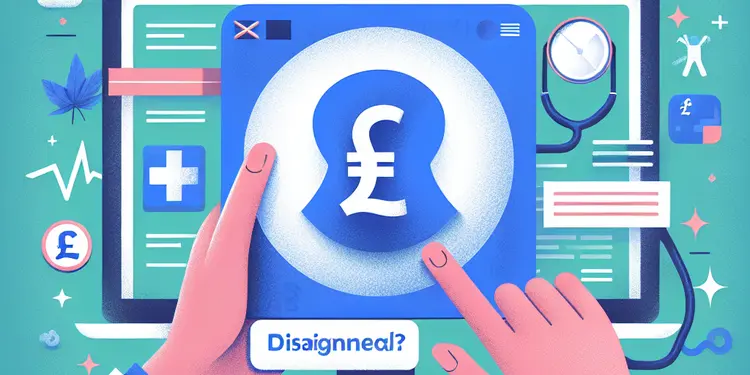
How is health-related anxiety diagnosed?
Relevance: 53%
-

Is it possible to fully recover from health-related anxiety?
Relevance: 53%
-

Can stress affect my Type 2 Diabetes?
Relevance: 52%
-

Can lifestyle changes help with health-related anxiety?
Relevance: 52%
-

Treating anxiety and depression - www.slam.nhs.uk
Relevance: 51%
-

Can stress cause asthma symptoms?
Relevance: 51%
-

Can stress management aid in menopause masking?
Relevance: 50%
-
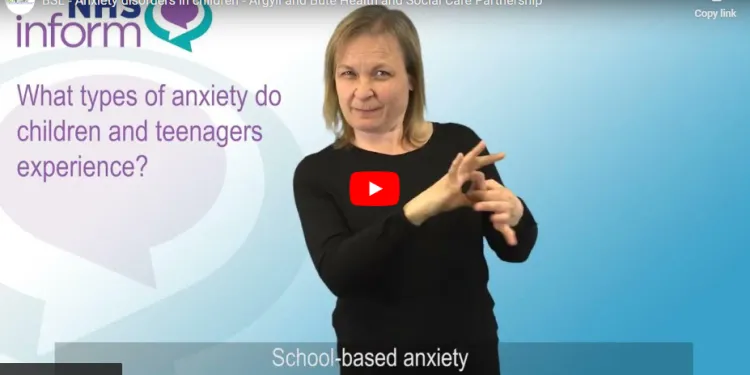
What type of anxiety do children and teenagers experience?
Relevance: 50%
-
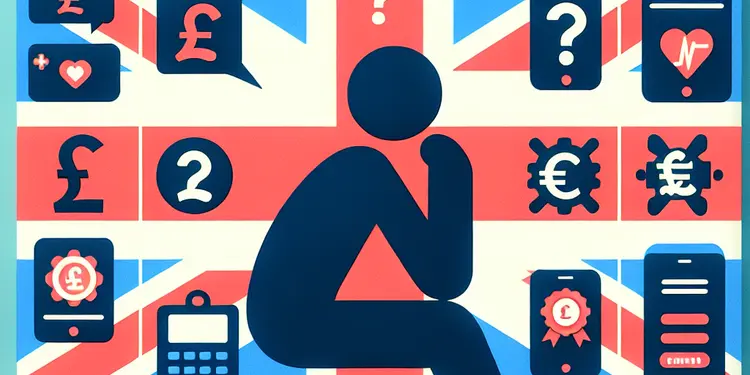
What should someone do if they suspect they have health-related anxiety?
Relevance: 50%
-

Can children and teens have health-related anxiety?
Relevance: 49%
-

Can Music Therapy Be the Key to Reducing Anxiety?
Relevance: 49%
-

What role does the internet play in health-related anxiety?
Relevance: 49%
-

Can stress cause high blood pressure?
Relevance: 48%
-

Can stress make Crohn's disease worse?
Relevance: 48%
-

Can stress affect a pregnancy test result?
Relevance: 47%
-

Short Films About Mental Health - Anxiety
Relevance: 47%
-

Can stress trigger shingles?
Relevance: 47%
-

How do cortisol levels differ between acute and chronic stress?
Relevance: 47%
-

Does stress contribute to nettle rash?
Relevance: 46%
-

Can stress trigger shingles?
Relevance: 46%
-

How can stress management affect cortisol levels?
Relevance: 45%
-

Does stress impact gut health as we age?
Relevance: 45%
Coping with Stress and Anxiety
Recognising Stress and Anxiety
Stress and anxiety are common experiences for many people in the United Kingdom. Recognising the signs is the first step toward managing them effectively. Symptoms can include difficulty concentrating, irritability, rapid heartbeat, and insomnia. Understanding these signs helps in tackling the root causes before they escalate.
Effective Stress Management Techniques
There are various strategies to manage stress effectively. Physical activity, like walking or yoga, can significantly reduce stress levels. Additionally, maintaining a balanced diet and ensuring adequate sleep are crucial. Mindfulness exercises, such as meditation and deep-breathing exercises, also play a vital role in calming the mind and reducing anxiety. Finding hobbies and engaging in activities you enjoy can provide a much-needed break from daily stressors.
The Role of Social Support
Talking to friends, family, or colleagues can be incredibly beneficial. Sharing your feelings and experiences can lessen the burden of stress and anxiety. Support groups are also available throughout the UK, offering a space to connect with others facing similar challenges.
Professional Help and Therapy
If stress and anxiety become overwhelming, seeking professional help is a vital step. The UK offers numerous resources, including therapy and counselling services. Cognitive Behavioural Therapy (CBT) is a particularly effective treatment for anxiety and stress. Additionally, GPs can provide support and, if necessary, prescribe medication to manage symptoms.
Lifestyle Changes for Long-term Benefits
Implementing small lifestyle changes can yield long-term benefits in managing stress and anxiety. Setting realistic goals, practising time management, and learning to say no when necessary can alleviate daily pressures. Reducing caffeine and alcohol intake can also help, as both substances can exacerbate stress and anxiety symptoms.
The Importance of Self-Care
Prioritising self-care is essential. This includes taking time for oneself, practising relaxation techniques, and ensuring regular break periods throughout the day. Whether it's reading a book, taking a warm bath, or going for a nature walk, self-care practices can significantly reduce stress levels and improve overall well-being.
Conclusion
Dealing with stress and anxiety is a multifaceted process that involves recognising symptoms, implementing effective management techniques, seeking social and professional support, making lifestyle changes, and prioritising self-care. By adopting these strategies, individuals in the UK can better cope with stress and anxiety, leading to a healthier and more fulfilling life.
Coping with Stress and Worry
What is Stress and Worry?
Many people feel stress and worry in the UK. Noticing these feelings is the first step to feeling better. You might find it hard to focus, feel grumpy, have a fast heartbeat, or can’t sleep well. If you know what stress looks like, you can stop it before it gets worse.
Ways to Handle Stress
There are many ways to deal with stress. Moving your body by walking or doing yoga can help you feel calmer. Eating healthy foods and getting enough sleep is important too. Try doing mindfulness exercises like meditation or deep breathing. Doing activities you love can also give you a break from stress.
Help from Friends and Family
Talking to friends, family, or people you work with can really help. Sharing how you feel can make your stress and worry feel smaller. There are support groups in the UK where you can meet others who feel the same.
Getting Help from Doctors
If stress and worry feel too big, it’s important to talk to a doctor or therapist. In the UK, there is help like talking therapy to help you feel better. A special kind of talking therapy called Cognitive Behavioural Therapy (CBT) can help with stress and worry. Doctors can also help you with medicines if needed.
Changing Daily Habits
Making small changes in your daily life can help with stress and worry over time. Set small goals and manage your time well. Learn to say no if you have too much to do. Drinking less coffee and alcohol can also help because they can make stress worse.
Taking Care of Yourself
Remember to take care of yourself. This means taking breaks and relaxing. You can read a book, have a warm bath, or take a walk outside. These things can lower stress and make you feel better.
In Summary
To handle stress and worry, you need to know what it feels like, find ways to manage it, talk to others, get help from professionals, make changes in your life, and take care of yourself. By doing these things, people in the UK can feel less stressed and enjoy life more.
Frequently Asked Questions
What are some common symptoms of stress and anxiety?
Common symptoms include feeling overwhelmed, increased irritability, difficulty concentrating, headaches, muscle tension, and trouble sleeping.
How can I differentiate between normal stress and an anxiety disorder?
Normal stress is temporary and typically related to specific events or situations. An anxiety disorder is more persistent, lasts for six months or more, and can interfere significantly with daily life.
What are effective relaxation techniques for managing stress and anxiety?
Some effective techniques include deep breathing exercises, meditation, progressive muscle relaxation, and mindfulness practices.
How does physical exercise help with stress and anxiety?
Exercise releases endorphins, which are chemicals in the brain that act as natural painkillers and mood elevators. It also reduces levels of the body's stress hormones, such as adrenaline and cortisol.
Can dietary choices affect stress and anxiety levels?
Yes, eating a balanced diet with plenty of fruits, vegetables, whole grains, and lean proteins can support mental health. Avoid excessive caffeine, alcohol, and sugary foods.
What is cognitive-behavioural therapy (CBT) and how can it help?
CBT is a type of talk therapy that helps people identify and change negative thought patterns and behaviours. It is effective in treating anxiety and stress by providing practical strategies to manage symptoms.
Are there any stress and anxiety management apps recommended in the UK?
Yes, popular apps include Headspace, Calm, and the NHS-approved app, My Possible Self. These can offer guided meditations and cognitive-behavioural exercises.
How important is social support in managing stress and anxiety?
Social support is crucial. Talking to friends, family, or a support group can provide emotional comfort and practical advice, which helps reduce stress and anxiety.
What role do sleep habits play in managing stress and anxiety?
Good sleep is vital. Poor sleep can exacerbate stress and anxiety, while adequate rest can improve your mood, energy levels, and mental well-being.
What should I do if I think my stress or anxiety is getting out of control?
Consult a healthcare provider. They can offer a diagnosis, recommend treatment options such as therapy or medication, and refer you to mental health specialists if necessary.
How can mindfulness practices help with stress and anxiety?
Mindfulness involves paying attention to the present moment without judgment. This can reduce stress and anxiety by helping you stay grounded and less reactive to negative thoughts.
Can hobbies and creative activities help manage stress and anxiety?
Yes, engaging in hobbies and creative activities can provide a distraction, promote relaxation, and boost mood. Activities like painting, knitting, or playing a musical instrument can be particularly beneficial.
What government or NHS resources are available for stress and anxiety in the UK?
The NHS website offers a range of resources, including self-help guides, recommended apps, and information on local mental health services. You can also call NHS 111 for advice.
How can I practice self-care to manage stress and anxiety?
Self-care includes activities that you enjoy and that promote physical, emotional, and mental well-being, such as reading, taking baths, going for walks, and setting boundaries to ensure you have personal time.
Is it normal to feel stressed or anxious about life changes?
Yes, feeling stressed or anxious about significant life changes like moving house, changing jobs, or starting a new relationship is normal. These feelings usually subside as you adjust to the changes.
What are some signs of stress and worry?
Stress and worry can make you feel or act differently. Here are some signs: - Feeling very tired or not wanting to do things. - Being sad or crying a lot. - Feeling scared or upset for no reason. - Having a tummy ache or headache. - Finding it hard to focus or remember things. If you feel these things, it can help to talk to someone you trust. You can also try taking deep breaths or doing something you enjoy, like drawing or listening to music.Some signs you might notice are feeling like there is too much to do, getting annoyed easily, having a hard time focusing, getting headaches, your muscles feeling tight, and having trouble sleeping.
How can I tell the difference between normal stress and an anxiety disorder?
Sometimes we feel stressed. This is normal. It can happen when you have a big test or a busy day. This kind of stress goes away when things calm down.
An anxiety disorder is different. It makes you feel very worried and scared for a long time. It can make it hard to do everyday things.
Here's how you can tell them apart:
- Normal Stress: Goes away after a while. You can still do your daily activities.
- Anxiety Disorder: Lasts a long time. It can stop you from doing things you enjoy. You might need some help.
If you are unsure, talk to a trusted adult or a doctor. They can help you understand what you are feeling.
Try to use calming exercises, like deep breathing or drawing, to help. These can make you feel better when you're worried.
Normal stress goes away and usually happens because of something specific. An anxiety disorder is different. It lasts a long time, at least six months, and can make daily life hard.
How can I feel more relaxed and less worried?
There are some ways that can help you feel calm and happy:
- Take deep breaths: Breathe in slowly and then breathe out slowly.
- Exercise: Move your body, like walking or dancing, to help your mind relax.
- Listen to music: Play your favorite songs to feel good.
- Talk to someone: Share your feelings with a friend or family member.
- Draw or write: Use coloring or writing to express what you feel.
You can also use helpful tools, like apps that help you meditate or relax. They guide you on how to feel calm.
Here are some good ways to feel calm:
- Take deep breaths. Breathe in and out slowly.
- Try meditation. This means sitting quietly and thinking about good things.
- Relax your muscles. Tighten and then loosen each muscle group.
- Be mindful. Pay attention to what you see, hear, and feel right now.
How does moving your body help when you feel worried or stressed?
Exercise means when you move your body, like walking, running, or playing sports.
Exercise can help your brain feel happy. This can make you feel less worried or stressed.
Moving your body helps you sleep better. Good sleep can make you feel calmer.
Doing fun exercises with friends can make you feel better too.
If you are feeling very worried or stressed, you can talk to a grown-up for help.
When you exercise, your body makes special chemicals called endorphins. Endorphins help you feel good and happy. Exercise also helps make the stress in your body go away by lowering stress chemicals like adrenaline and cortisol.
Can what we eat change how stressed or worried we feel?
What we eat can help us feel better or worse. Some foods can help us feel calm and happy. Others might make us feel worried or stressed.
Try to eat fruits, vegetables, and whole grains. These foods can help you feel good.
Remember:
- Drink lots of water.
- Avoid too much sugar and caffeine.
Helpful tools:
- Use a food diary to track what you eat.
- Ask an adult or doctor for advice.
Yes, eating good food helps keep your mind healthy. Eat lots of fruits, veggies, whole grains, and lean meats. Try not to have too much coffee, alcohol, or sugary treats.
What is CBT and how can it help?
CBT stands for cognitive-behavioural therapy. It is a type of talking treatment. It helps people change how they think and act.
CBT can help people who feel sad, scared, or worried. It teaches new ways to handle problems and feel better.
Here are some tools that can help you:
- Writing down your thoughts and feelings.
- Practicing deep breathing to feel calm.
- Talking with a trusted friend or adult.
CBT is a kind of talking therapy. It helps people notice and change unhelpful thinking and actions. CBT is good for helping with worry and stress. It gives easy ways to feel better.
What apps can help with stress and worry in the UK?
Feeling stressed or worried? These apps might help:
- Calm: Helps you feel calm and relaxed.
- Headspace: Teaches you how to meditate.
- MindShift: Gives tips for staying positive.
You can try deep breathing or talking to someone you trust to feel better.
Yes, there are some apps that are good to use. These apps are Headspace, Calm, and an app called My Possible Self that has been approved by the NHS. They can help you with meditation and exercises for the mind.
Why is having friends and family important when feeling worried or stressed?
When you feel worried or stressed, having people to talk to can help. These people can be your friends or family. They can make you feel better.
It’s good to share your feelings with someone you trust. They can listen and give you comfort. You do not have to deal with worries alone.
Try to spend time with people who make you happy and who care about you. It can help you feel less alone.
Using simple tools like deep breaths or drawing can also be calming.
Having people to talk to is very important. You can talk to friends, family, or a group of people who understand you. They can make you feel better and give you good ideas to help you. This can make you feel less worried and stressed.
How do sleep habits help with stress and feeling worried?
Good sleep is very important. When you don't sleep well, it can make you feel more worried and stressed. But when you get enough good sleep, it makes you feel happier and gives you more energy. It also helps your mind feel better.
What to Do if You Feel Very Stressed or Anxious
If you feel too stressed or worried, try these ideas:
- Talk to Someone: Tell a friend or family member how you feel.
- Take Deep Breaths: Breathe in slowly through your nose and out through your mouth.
- Do Something You Enjoy: Draw, listen to music, or play a game.
- Try Relaxing: Take a warm bath or read a book.
- Use Apps: There are apps that can help you relax. You can ask an adult for help to find one.
- Ask for Help: If you still feel very stressed, tell a doctor or teacher.
Talk to a doctor. The doctor can help find out what is wrong. They can suggest ways to feel better, like talking to someone or taking medicine. If needed, they can also send you to other health experts.
How can mindfulness help with stress and worry?
Do you feel stressed or worried sometimes? Mindfulness can help you feel better. It means paying attention to what you are doing right now.
Here are some ways mindfulness can help:
- Breathe Deeply: Take slow, deep breaths to calm down.
- Focus on Now: Think about what you see, hear, or feel. It helps you stay calm.
- Be Kind to Yourself: Say nice things to yourself. It's okay to make mistakes.
Supportive tools you can try:
- Calm App: An app that helps you relax.
- Guided Videos: Watch videos that teach mindfulness.
- Journaling: Write down your thoughts and feelings.
Mindfulness means focusing on what is happening right now. Try not to judge anything. This can help you feel less stressed and worried. It helps you stay calm and not get upset by bad thoughts.
Do hobbies and fun activities help you feel less worried and stressed?
Doing things you enjoy, like hobbies or creative activities, can help you feel happy and calm. When you do something fun, it can take your mind off worries.
Here are some ideas to help you try relaxing activities:
- Paint or draw a picture
- Make music or listen to your favorite songs
- Read a book or tell a story
- Build something with blocks or puzzles
- Play a game or sport
It’s important to spend time doing things you like. Try these and see what makes you feel good.
Yes, doing fun hobbies can help you feel better. They can help you relax and be happy. Things like painting, knitting, or playing music are great. They make you feel good.
Try using tools like colorful pens and big paper for drawing. Or listen to music while you do your hobbies. These can make it even more fun!
What help does the government or NHS give for stress and worry in the UK?
Stress means feeling worried or tense.
Worry means feeling uneasy or scared.
If you feel stressed or worried, you can get help.
The NHS has websites and phone lines that can help.
You can also talk to a doctor who can help you find support.
Try these things to feel better:
- Take deep breaths.
- Go for a walk.
- Talk to someone you trust.
Use apps or videos that teach you how to relax.
The NHS website has lots of helpful things. You can find self-help guides, apps that are good for you, and information about local mental health services. If you need advice, you can call NHS 111.
How can I take care of myself to feel less worried or stressed?
Taking care of yourself helps you worry less. Here are some easy ways to do it:
- Sleep well: Try to get enough sleep every night.
- Eat healthy: Eat fruits and vegetables. Drink water.
- Exercise: Play or exercise a little every day.
- Talk about feelings: Tell someone you trust how you feel.
- Take breaks: Rest and relax when you feel tired.
- Do fun things: Spend time doing things you like.
- Breathe easy: Take deep breaths when you feel worried.
- Write it down: Write or draw about your feelings and thoughts.
Remember, it's okay to ask for help. You can talk to a family member, friend, or teacher for support.
Self-care means doing things that make you happy and healthy. It can be fun things like reading a book, taking a warm bath, going for a walk, or making sure you have time for yourself.
Is it okay to feel worried or scared about changes in life?
It is okay to feel worried or nervous about big life changes. These changes can be moving to a new home, getting a new job, or starting a new friendship.
These feelings usually go away once you get used to the new changes.
If you are feeling stressed, try deep breathing or talking to someone you trust.
Useful Links
This website offers general information and is not a substitute for professional advice.
Always seek guidance from qualified professionals.
If you have any medical concerns or need urgent help, contact a healthcare professional or emergency services immediately.
Some of this content was generated with AI assistance. We’ve done our best to keep it accurate, helpful, and human-friendly.
- Ergsy carfully checks the information in the videos we provide here.
- Videos shown by Youtube after a video has completed, have NOT been reviewed by ERGSY.
- To view, click the arrow in centre of video.
- Most of the videos you find here will have subtitles and/or closed captions available.
- You may need to turn these on, and choose your preferred language.
- Go to the video you'd like to watch.
- If closed captions (CC) are available, settings will be visible on the bottom right of the video player.
- To turn on Captions, click settings .
- To turn off Captions, click settings again.
More Items From Ergsy search
-

Coping with Stress and Anxiety
Relevance: 100%
-

How is health-related anxiety different from general anxiety?
Relevance: 64%
-

What is health-related anxiety?
Relevance: 63%
-

Anxiety | NHS
Relevance: 62%
-

Anxiety in young people
Relevance: 59%
-

Is health-related anxiety a common condition?
Relevance: 59%
-

What are common treatments for health-related anxiety?
Relevance: 57%
-

What is health related anxiety?
Relevance: 57%
-

Does stress affect tinnitus?
Relevance: 57%
-

Can health-related anxiety cause physical symptoms?
Relevance: 56%
-

Are there self-help strategies for managing health-related anxiety?
Relevance: 55%
-

Generalised anxiety disorder (GAD)
Relevance: 55%
-

Can health-related anxiety lead to actual health problems?
Relevance: 54%
-

Why is reassurance not always helpful for health-related anxiety?
Relevance: 54%
-

Is medication effective for health-related anxiety?
Relevance: 54%
-

What causes health-related anxiety?
Relevance: 54%
-

Can health-related anxiety affect relationships?
Relevance: 54%
-

What are common symptoms of health-related anxiety?
Relevance: 53%
-

How is health-related anxiety diagnosed?
Relevance: 53%
-

Is it possible to fully recover from health-related anxiety?
Relevance: 53%
-

Can stress affect my Type 2 Diabetes?
Relevance: 52%
-

Can lifestyle changes help with health-related anxiety?
Relevance: 52%
-

Treating anxiety and depression - www.slam.nhs.uk
Relevance: 51%
-

Can stress cause asthma symptoms?
Relevance: 51%
-

Can stress management aid in menopause masking?
Relevance: 50%
-

What type of anxiety do children and teenagers experience?
Relevance: 50%
-

What should someone do if they suspect they have health-related anxiety?
Relevance: 50%
-

Can children and teens have health-related anxiety?
Relevance: 49%
-

Can Music Therapy Be the Key to Reducing Anxiety?
Relevance: 49%
-

What role does the internet play in health-related anxiety?
Relevance: 49%
-

Can stress cause high blood pressure?
Relevance: 48%
-

Can stress make Crohn's disease worse?
Relevance: 48%
-

Can stress affect a pregnancy test result?
Relevance: 47%
-

Short Films About Mental Health - Anxiety
Relevance: 47%
-

Can stress trigger shingles?
Relevance: 47%
-

How do cortisol levels differ between acute and chronic stress?
Relevance: 47%
-

Does stress contribute to nettle rash?
Relevance: 46%
-

Can stress trigger shingles?
Relevance: 46%
-

How can stress management affect cortisol levels?
Relevance: 45%
-

Does stress impact gut health as we age?
Relevance: 45%


